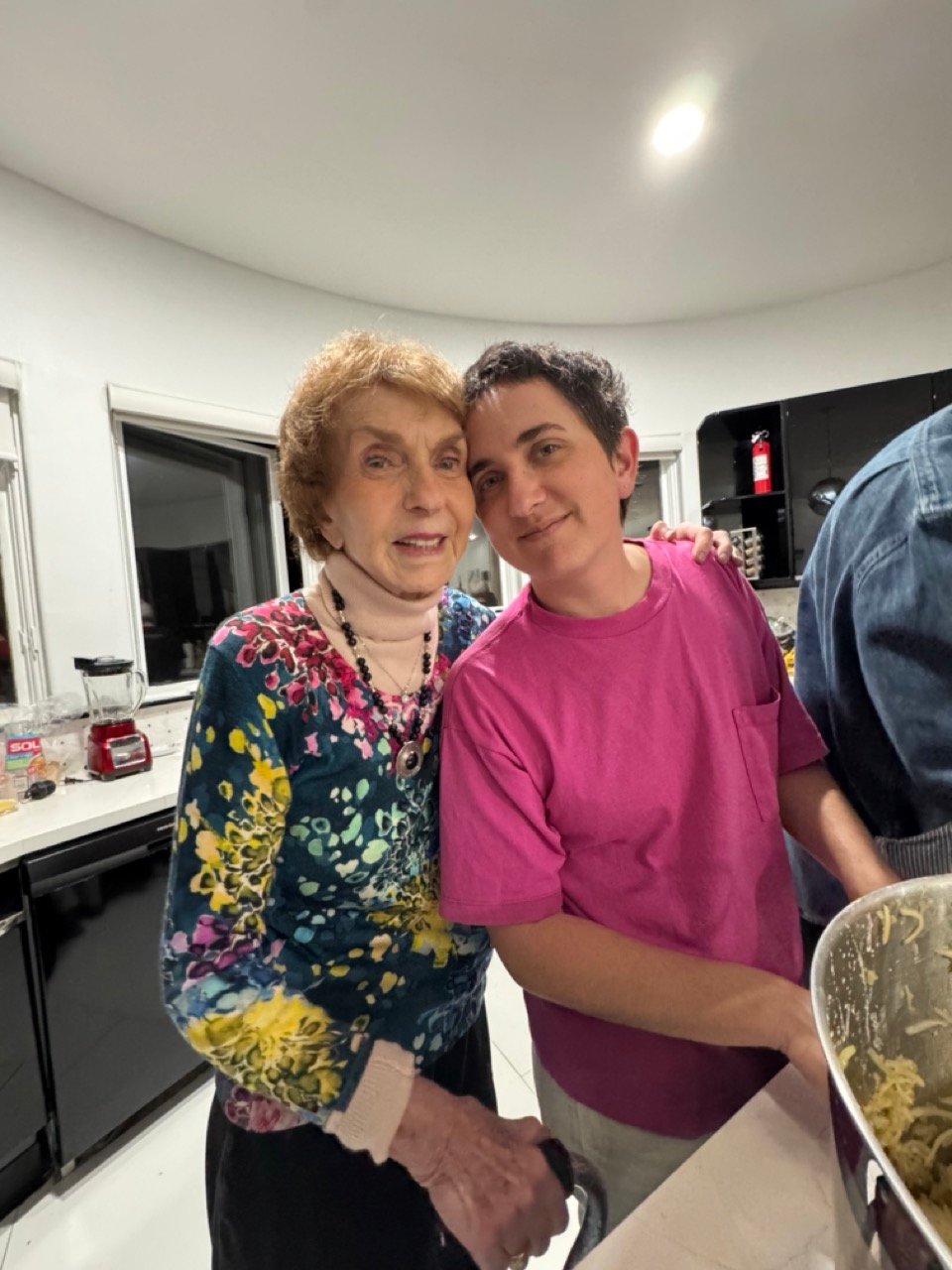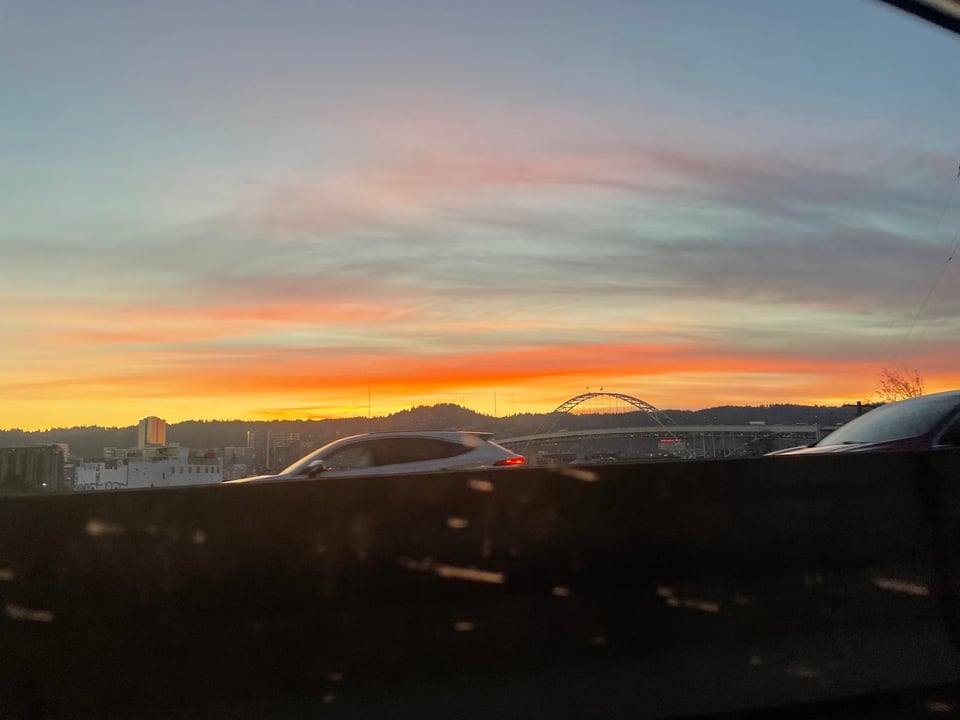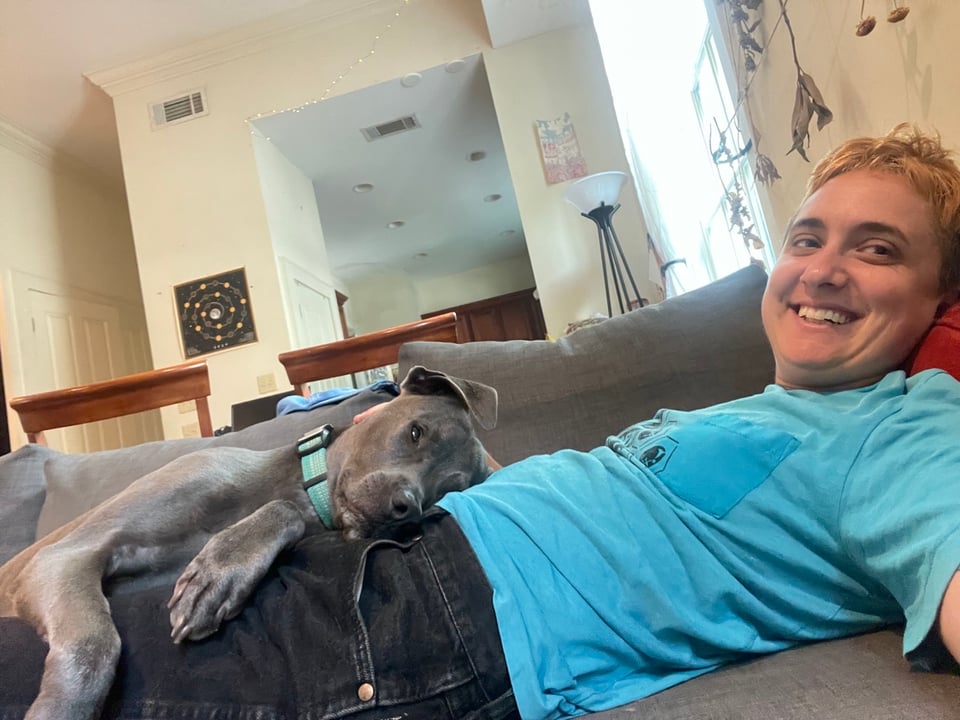Finding Joy in the Oy
Joy Vey!
The world’s been getting me down! How could it not? Bummer here, bummer there.
So, how do you find Joy in the Oy?
“Oy Vey” is a Yiddish phrase that’s become one of the more well-known idioms of Ashkenazic Jewish culture in the US. Stemming from the longer “oy vey iz mir” which translates to the dramatic “oh woe is me,” it almost requires a hand-to-forehead swoon. My Bubbe (yiddish for grandmother) grew up speaking exclusively Yiddish with her bubbe, her grandmother. My great-great grandma Rebecca traveled to New York from Poland in the early 1900s, pregnant with my great grandmother Pauline. Somewhere in the next hundred years, assimilation and the privileges of whiteness erased Yiddish from my family lexicon, but oy vey remained, an existential “yikes!”. Oy vey recalls a lineage of hardship that at some point became comic – what more could you do than say “oy vey!”.

I hope not to simply throw my hands up in the years to come – we need each other. The past year has led me to better understand just how entrenched we are in a world that kills so many of us. The majority of Americans supported an end to the bombing in Gaza, yet our protests and calls and campaigns were fifteen months too slow and over 48,000 people too late. How can it feel safe, even enjoyable, for us to work towards bringing our imagined, liberated world into being? How can we sustain ourselves as we also despair? How do you know when you’re doing enough?
Even while being more “plugged in” to organizational liberation work when I lived in New Orleans, I felt the weight of these questions. I think back to a moment in December 2023, when I waited with a group of thirty or so people due to marshal the crowd for a big pro-Palestine march. We met up in front of the Aquarium on the riverwalk, a school of keffiyehs, as the organizers handed out walkie talkies so we could communicate with each other and send the march the right way. Vests distributed and instructions given, we sat back to wait for the crowd to arrive. I started chatting with someone I had only recently met at a Shabbat dinner for anti-Zionist Jews, telling her about my overwhelm, my “oy vey iz mir” attitude, my self-doubts. She eyed me calmly, arms crossed to warm herself from the light breeze off the water. “So what do you do to ground yourself?” she asked. A normal question—she was a therapist after all. But the words landed on me like molasses, slowly moving through me as I scanned my body looking for signs of my ungroundedness. The inner monologue went something like: She thinks I’m not grounded. I must be alienating people because I’m not grounded. I’m not grounded so I’ve really been fucking up, haven’t I? I haven’t been meditating. I haven’t been doing my self care. Now it’s infecting the movement! and on and on and on. The ego, the perfectionism, the self-punishing. Routes I can travel so quickly in spaces that strive for collective liberation, freedom, and justice. I could believe so strongly in the destructive power of my singular presence, but for some reason I couldn’t imagine the creative potential of one person’s actions. Foregoing the headset, I put my ear plugs in to drown out the chanting and the drumming. I got on my bike and blocked roads for the thousands of people in the streets. In this moment the question of “enough” felt overwhelming, even as I moved in a sea of people full of potential power.
These days, my antidote to this overwhelm is finding moments of grounding joy amid all the horror – the joy in the oy, if you will. I find these moments useful, little nuggets of fuel I can gnaw on to stave off the hand-wringing and interrupt the circular thoughts of enoughness that prevent me from doing anything in the first place. Joy vey in Engdish/Yidlish could mean “joy woe.” Or, with a little more artistic liberty, it could mean joy that keeps us present to the beauty and surprise of the world, reminding us that there is always something to fight for, in the small ways and the larger ones too.
I’ve experienced these moments often via the natural world. For example, today. As I was driving home from campus in I5 traffic at 5:05, listening to Democracy Now detail the latest act of heinous hate by some white supremacists that have probably never appreciated the sky at dusk in their life – wait, look there! Mt. Hood, Wy’East to the Multnomah people, bathed in the most gorgeous blush pink, its crevasses and crags like little smiles letting you in on a secret a millennia old. I grabbed my phone from the cord, cutting off dear Amy Goodman mid-sentence, to foolishly try and capture the moment. There’s something so beautiful and freeing about the impossibility of capturing a good mountain or moon picture from our devices that do basically everything else. I couldn’t snap the mountain, but I managed to turn westward for the glow of the setting sun.

I’ve enjoyed these little things. Because they don’t seem so little in a world that can be so cruel.
Later on I might write more about security guards in Portland, or what safety means, or my love of spas. But for now, I just want to enjoy a moment of feeling super small and amazed. I wonder if other people in the cars next to me felt the same. I wonder what that feeling can do for us. What can it do for you?
